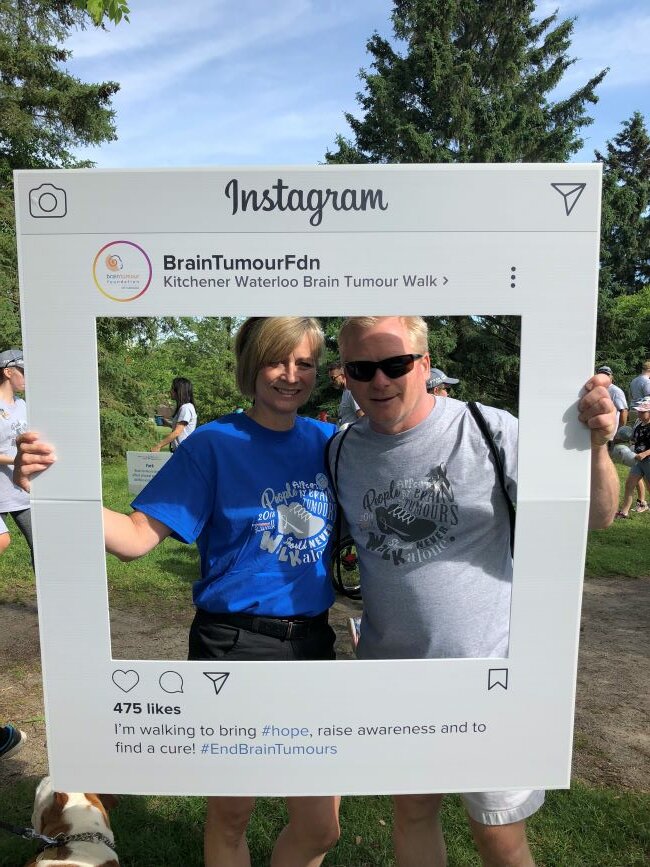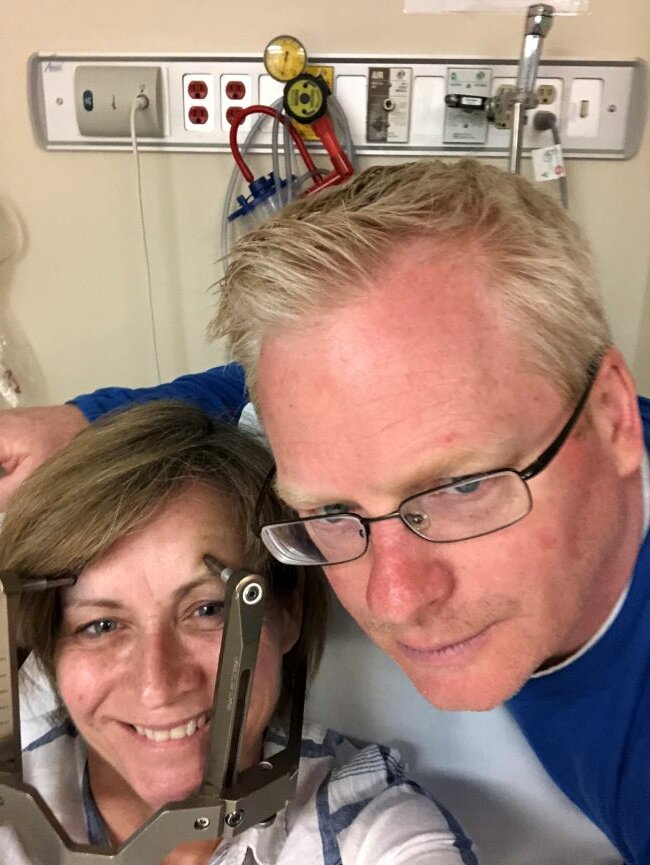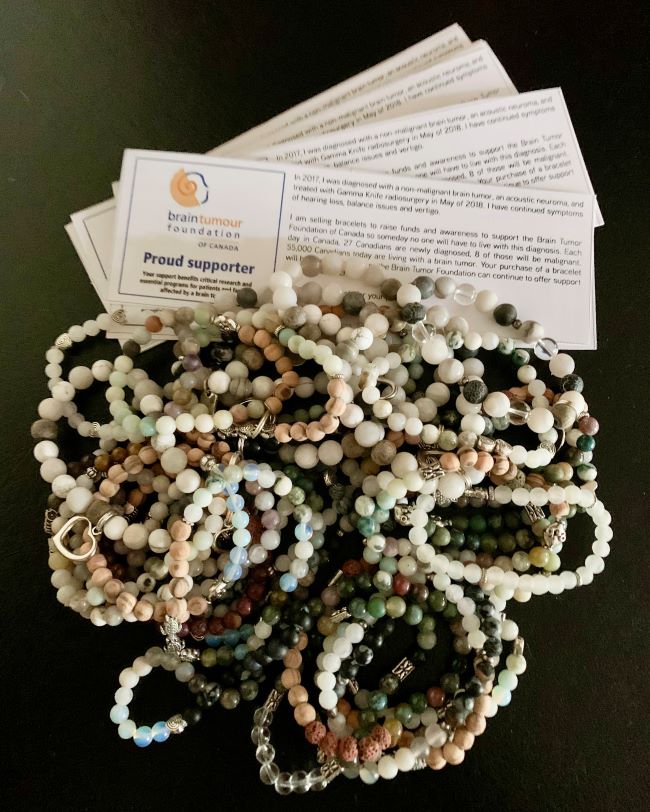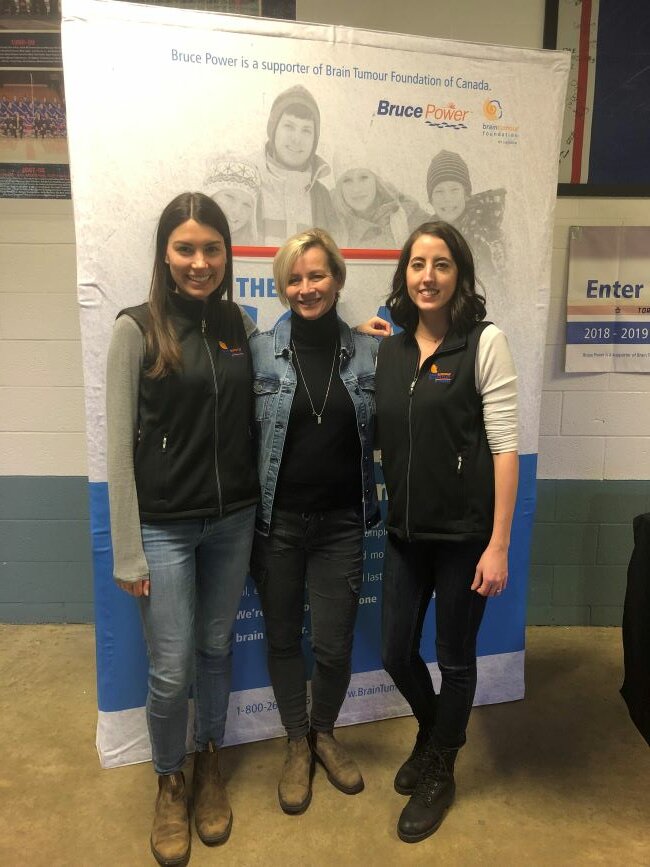
Turning Challenges into Change
Traci Chambers’ relationship with Brain Tumour Foundation of Canada dates back to 2017, soon after she’d been diagnosed with a non-malignant acoustic neuroma tumour.
Traci had been experiencing gradual hearing loss and vertigo, though her doctor assumed it was due to fluid in her ear. It wasn’t until her occupational therapist, who she’d been seeing in her recovery from a car accident, suggested a referral to an ear, nose and throat (ENT) specialist.
The ENT initially thought Traci might have Ménière disease, a balance disorder that’s caused by an abnormality in the inner ear. He sent her for an MRI to be safe, and that’s when her tumour was discovered.
“He said, ‘If you’re going to have a brain tumour, it’s the best one to have, so you don’t need to worry about it too much,’” Traci recalls. “It left me feeling a bit funny and confused, as I felt like it was being minimized or played down.”
A turning point
 Traci, who works in public health, would drive past Brain Tumour Foundation of Canada’s office in London, Ont., on her daily commute. One day, she decided to stop in.
Traci, who works in public health, would drive past Brain Tumour Foundation of Canada’s office in London, Ont., on her daily commute. One day, she decided to stop in.
“I said, ‘I was recently diagnosed with an acoustic neuroma, and I don’t know if I’m at the right place,’” she shares. “The staff member I talked to said, ‘Of course you are.’ They gave me a ton of information and were just willing to listen.”
“It was the first time in my journey that I felt like I was really heard, welcomed and validated.”
Her doctor had suggested a wait-and-see approach, which Traci wasn’t entirely comfortable with. With encouragement from BTFC support staff, Traci says she learned how to advocate for herself. It was then that she connected with a neurosurgeon at Toronto Western Hospital, who recommended gamma knife radiosurgery (which is a form of radiation and not surgery).
From treatment to managing symptoms
Her neurosurgeon, Dr. Fred Gentili, listened to Traci’s concerns and was upfront with her about the effects of the radiation, which he said would not lessen her symptoms. Understanding that it could slow the tumour’s growth, Traci decided to go ahead with it.
Recovery took a couple weeks, Traci says, with the worst of it the day after her radiation treatment. She felt tired and nauseous, and experienced numbness in her head from where the local anesthesia was applied.
As Dr. Gentili advised, Traci still lives with her symptoms, seven years later. She wears hearing aids to help with her hearing loss and she gets vertigo on occasion. Her tumour is nearly the same size as it was pre-radiation, if not a few millimetres smaller, though the lack of growth is a positive.
“Even though it’s a non-malignant brain tumour, it’s still had an impact on my life,” Traci says.
Making a difference
 Grateful for the support she received through her journey, Traci wanted to give back by helping others who were facing their own journeys. She volunteered as the facilitator of Brain Tumour Foundation of Canada’s Kitchener-Waterloo support group, later acting as the Brain Tumour Walk co-ordinator for her region.
Grateful for the support she received through her journey, Traci wanted to give back by helping others who were facing their own journeys. She volunteered as the facilitator of Brain Tumour Foundation of Canada’s Kitchener-Waterloo support group, later acting as the Brain Tumour Walk co-ordinator for her region.
Additionally, she used her crafting skills to create handmade, grey bracelets, with the funds going to Brain Tumour Foundation of Canada. Between her bracelet campaign and her Walk fundraising, Traci and her partner raised more than $5,000.
Traci’s legacy of giving back is one that continues to have a ripple effect on those around her, from the support group members she impacted to those who recognized her bracelets as a symbol of hope.
“When I think back to the beginning of my diagnosis, I just felt so isolated,” Traci says, “so it was being included by the Foundation and by other people impacted by a brain tumour that made me want to give back, once I had come through on the other side of my journey.”
Traci has also spoken about her experience of living with a brain tumour and the treatment she went through at various events—and even made an appearance in a commercial for fellow brain tumour community supporter, Bruce Power.
“The film crew came to my home and we spent the day filming a video, which was kind of cool,” she says, “though I don’t think I slept at all the night before!”
As for what’s next for Traci, she has her sights set ahead of her.
 “There’s always something to look forward to,” she says. “I’m going to continue looking forward and taking good care of myself.”
“There’s always something to look forward to,” she says. “I’m going to continue looking forward and taking good care of myself.”
She encourages others who find themselves facing a brain cancer diagnosis to seek support and know they don’t have to go at it alone.
“I can’t say enough for the support the Foundation offers people on every level, whether it’s at a corporate level or at a personal level, talking one-on-one with staff or volunteers,” Traci says. “They go above and beyond—that’s been my experience. To be diagnosed can be really isolating until you connect with the right people—and they really are the right people.”
From Brain Tumour Foundation of Canada:
We’d like to thank Traci for her kind words and for her unwavering support! It is volunteers and advocates like Traci that truly make a lasting impact in the lives of those affected by a brain tumour diagnosis.
Check out Get Involved and Ways to Give on our website to learn how you support the brain tumour community and leave a legacy of giving back.